
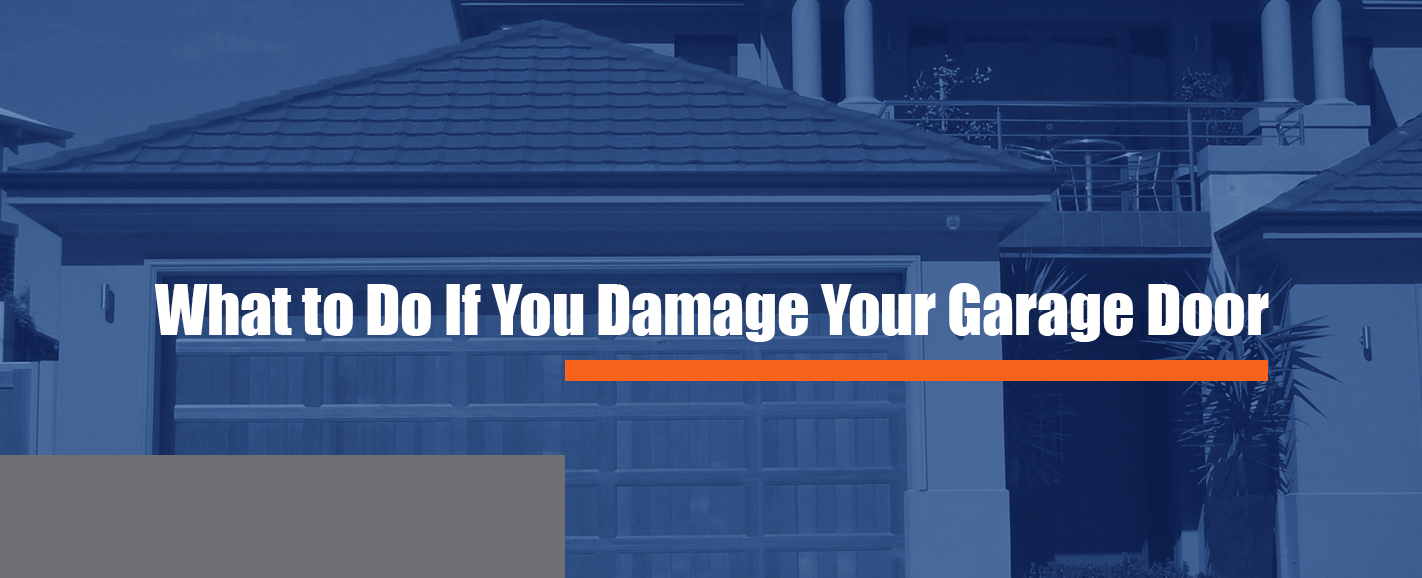
A garage door should operate smoothly. It should give you peace of mind knowing that when you come home from work and push the remote button, your door will open without any issues. When you leave in the morning or go out on the weekends, the door should close securely, protecting your belongings inside. However, your garage might not always work as it should.
Anything can go wrong with your garage door at any time. It could get stuck open, causing a serious security threat. On the other hand, it might not open at all, forcing you to leave your car or storage items outside, leaving them vulnerable to thieves, vandals or the elements. A damaged garage door that becomes stuck halfway is also a security issue, making it difficult to get anything in or out of the garage.
Call 336-830-8468 Now For Repair Services
If you accidentally backed into your door when trying to leave the garage or otherwise damaged your garage door panels, stay calm. Many people have done this. Some people have accidentally hit the accelerator instead of the brake. Others have crashed into their door during the winter after their car slid on ice.
When you discover a damaged part of the garage door, you must address the issue as soon as possible. Garage door damage hurts your home’s curb appeal and can also cause a potential safety risk that leaves your door susceptible to further damage.
Jump to Section:
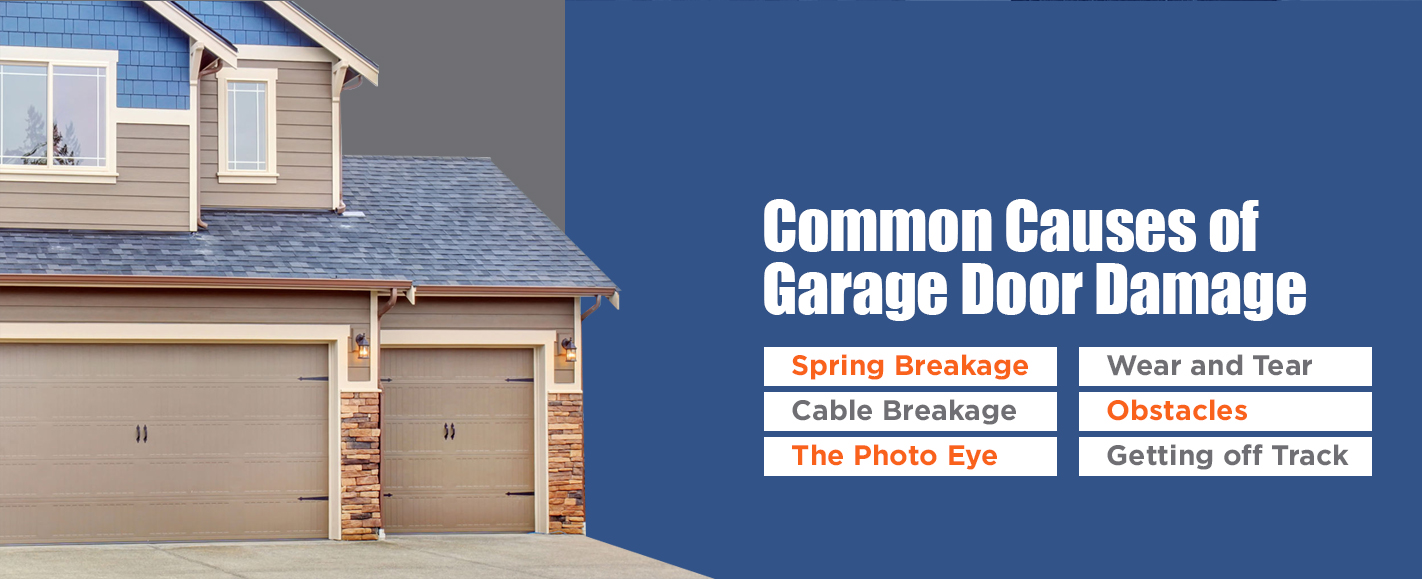
You may experience issues with your garage door for many reasons. Typically, garage door problems are linked to a few simple causes — a technical issue, an obstruction, wear and tear or simply old equipment. The most common causes of damaged garage doors include:
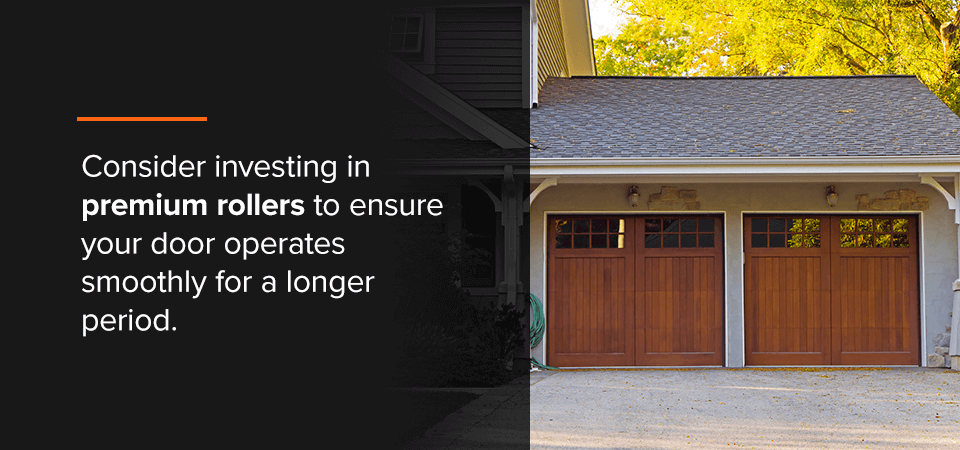
These are only a few causes of garage door damage that may affect your home. Having a garage door professional inspect the door as soon as you notice something wrong can help preserve the material, keep it functioning for longer and ensure the garage stays in good condition for years to come.
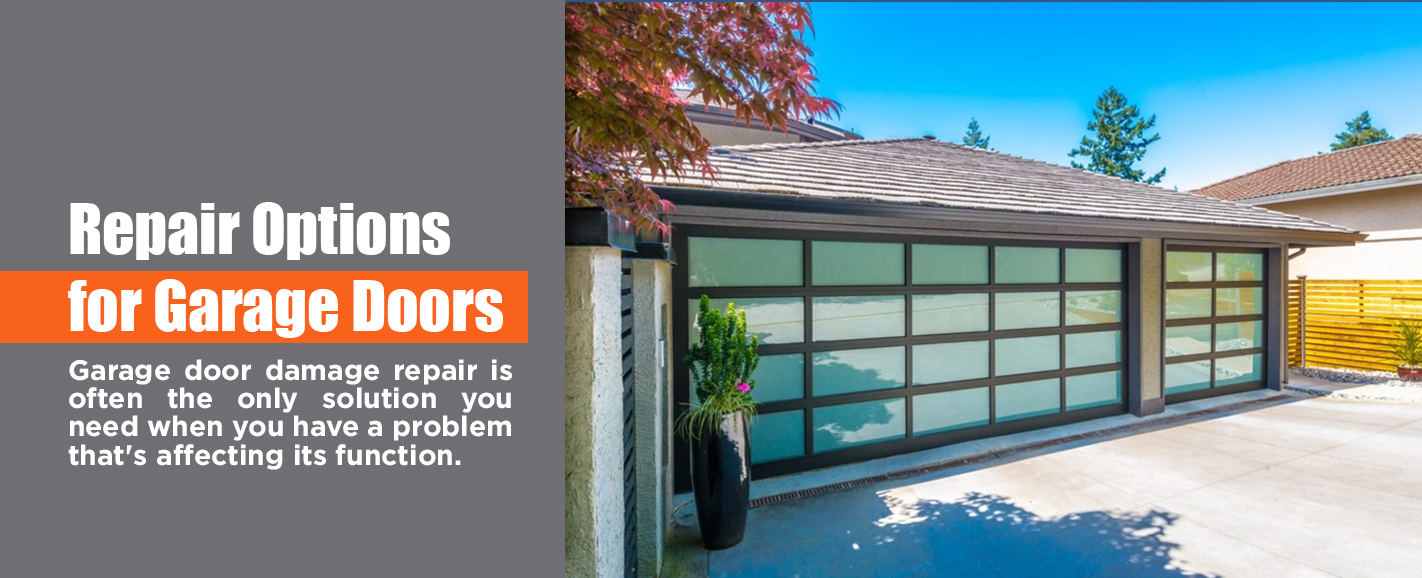
Garage door damage repair is often the only solution you need when you have a problem affecting its function. Just because you have some springs broken doesn’t mean you need to replace the entire garage door — you just need to replace the springs. This is true of other components, such as the sensors, tracks, hinges, rollers and openers.
Learn More About Our Garage Door Repair Services
You might need a total replacement only when you have massive functional or cosmetic damage. For instance, if you forgot to open the door and backed your car into it. Garage door professionals can repair scratches, dings, dents and other slight cosmetic damage.
In many cases, you will not have to replace your whole door and can instead replace individual panels. Remember that, even if you believe you know how to fix a door, you should not attempt to make repairs yourself. If you have concerns, call an expert.
Some common repair options include:
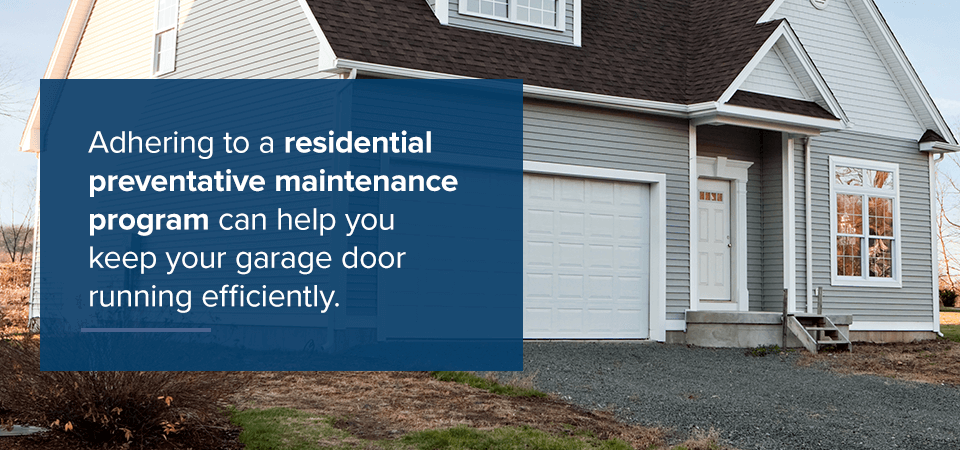
Identifying and addressing wear early is an integral part of the overall care for your door. Besides keeping your garage door clean and lubricating it regularly, adhering to a residential preventative maintenance program can help you keep your garage door running efficiently. It would be best to have a garage door expert inspect your door at least biannually. During the inspection, the specialist may find minor damage or wear such as:
Addressing these issues early can help preserve the aesthetics of your garage door. Your garage door can enhance curb appeal, complement the rest of the architecture of your home and completely transform your home’s exterior. When wear and tear show on your door, it can take away your home’s beauty.
Warping and cracking are sure signs you may wish to replace the door. The door’s age should be part of your overall decision on whether to repair or replace it. If your door is over fifteen years old, it’s probably a good idea to replace it.
Hitting the door with a particular force or at a specific angle can cause the door to come off its tracks. When this happens, you’ll no longer be able to open and close the door, and you definitely shouldn’t repair it yourself. It’s best to stay away from it entirely and call a garage door professional to come and place it properly on its tracks.
A few reasons why your garage door would become stuck in one position include:
A garage door that’s partially opened can pose security concerns and provide strangers access into your home. Try to close the door manually, but without force. Trying to force the door shut can damage the motor, opener, belt and chain. Your best option is to contact a professional who offers emergency garage door repair services.
In some cases, there could be nothing wrong with your garage door, but the lock instead. People have accidentally locked themselves out without realizing it. If you try to open your door and hear the motor running, see if the locking mechanism or bar is in place. By removing the lock, the door should become free and move. Keypads could also be the issue. Many come with a vacation mode or lock mode that disables the garage door. Ensure the keypad didn’t lock your door.
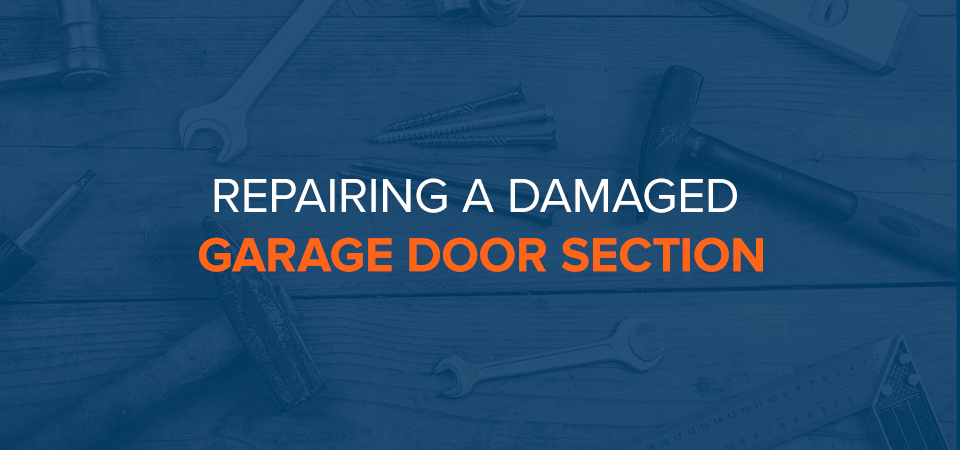
Whether the bottom or middle section of the door is damaged, a professional can replace it promptly. No matter what the cause is, typically, you will only need to replace the damaged section and not the entire door. Remember, if you need to replace two or more damaged sections, the cost can almost be the same as having to replace an entire door.
Also, depending on how old your door is, it’s possible that by replacing only one or two damaged sections with the door’s original color, you could end up with a color difference, particularly in the door sheen. You can wax the undamaged sections using car wax to lessen this effect, giving each part of your door an equal shine.
If your door makes screeching, squealing or grinding noises when opening or closing it, it could indicate an accumulation of debris or dirt in the tracks or a lack of lubricant. Don’t use harsh chemicals when removing dirt to clean the tracks. Once you clean the track, coat it with lubricant made particularly for garage doors. You can use WD-40 on the hardware and tracks if you don’t have access to garage door lubricant.
If you’ve tried these steps and you continue hearing the loud noise when using your garage door, it’s time to call in a professional to see if your tracks need repair.
If your door is falling more quickly than it used to, or if it bounces around when using it, it could be due to broken cables or chains. This is a relatively inexpensive repair that should be done by a professional. However, the installation could take some time.
So, when should you repair your garage door or replace it? There are specific considerations to making this decision, such as:
Remember, if you belong to a homeowner’s association (HOA), they might require you to gain approval from the organization if you want to replace your door because it may affect your home’s aesthetic greatly. HOAs often have strict rules regarding large cosmetic changes since they could affect the property value.
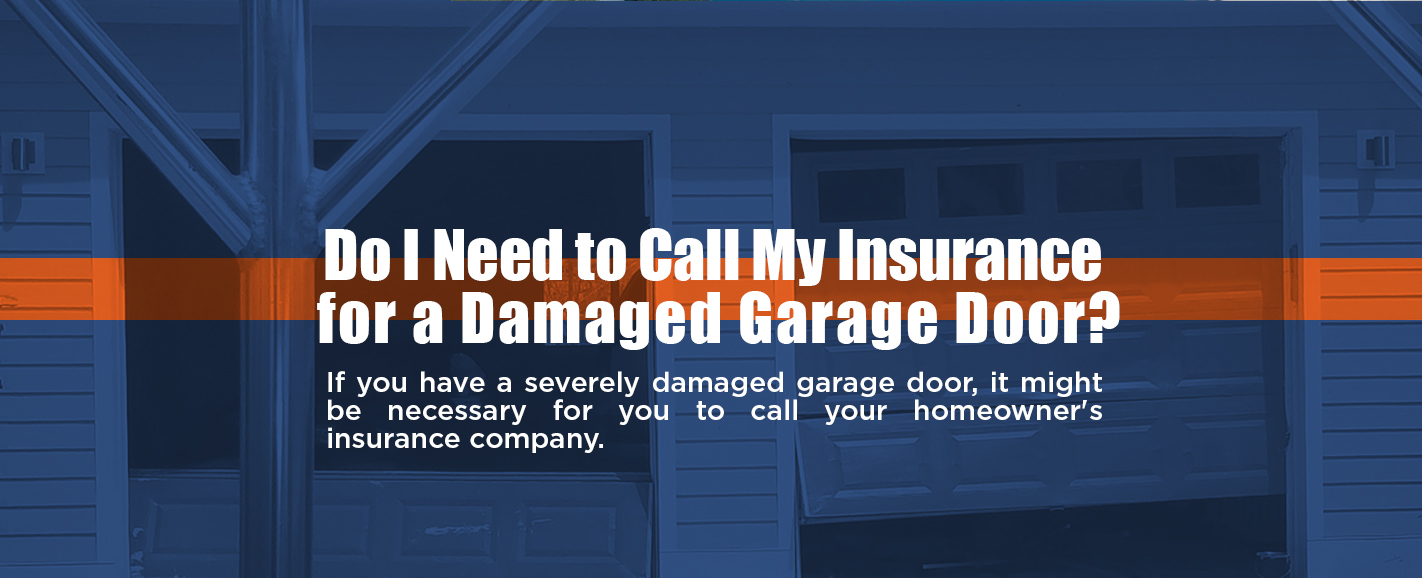
If you have a severely damaged garage door, it might be necessary for you to call your homeowner’s insurance company.
If you have damage to your car from hitting the garage door, you would need to contact your auto insurance company for this. But, the auto insurance company won’t cover garage door damage — that’s through your homeowner’s policy.
Be sure to check your insurance deductibles before giving them a call. It might not make sense to call them and make a claim if you’re going to end up paying too much out of pocket. In these cases, it may be wiser just to take care of the expenses yourself.
Garage door damage repair costs usually range in price depending on the types of repair you need. When it’s time to replace your garage door altogether, the costs will widely vary depending on factors such as the garage door size, the features and more. Repair and replacement costs will also vary by material type and the kind of panels.
If your door is an older door where you can no longer find replacement sections, it could cost more to repair it than replace the door. The repair cost will depend on how bad the damage is.
Labor will usually be your highest cost. Broken doors that need to be completely taken apart and reinstalled will cost you in labor.
If there is a problem with your garage door, you’ll want to have a professional come out and take a look. Don’t try to make repairs yourself if you suspect your garage door is broken as this could put you or your family in harm.
Contact Us for Garage Door Repairs Today
Since 1970, Marvin’s Garage Doors has been serving Northwestern North Carolina clients while remaining a family-owned and operated business. Our company performs garage door repairs quickly and efficiently, ensuring that our team of highly-qualified professionals is available to meet your needs.
We offer service to all garage makes and models with a variety of repairs, from panel replacement to spring repairs. Marvin’s Garage Doors is located in Mooresville, East Bend, Wilkesboro and Winston Salem, where you’ll find assistance with replacement parts like torsion and extension springs and 24/7 emergency service.
Contact us online to schedule your garage door repair appointment, or call our emergency line at (336) 813-2601.